Coronavirus: Passengers told to wear gloves at some UK airports
- Published
- comments
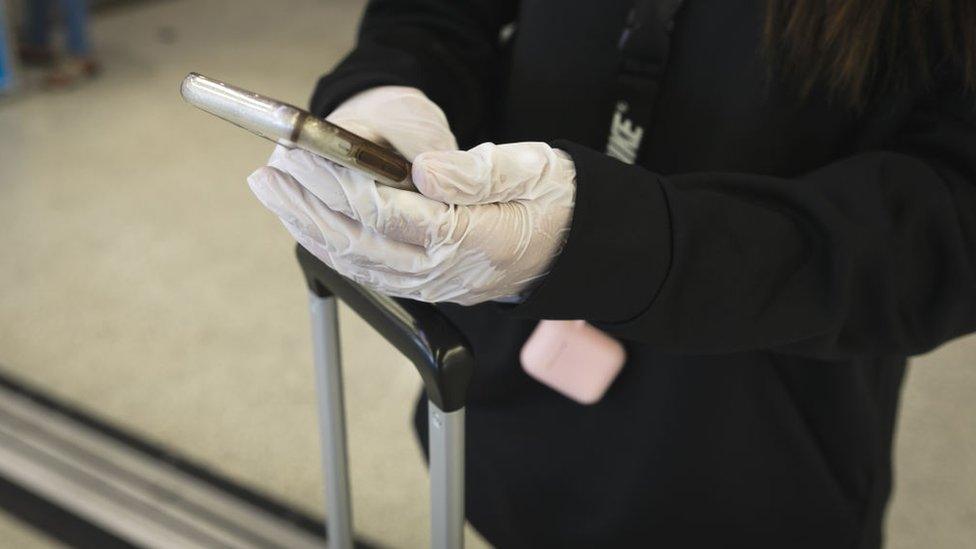
Passengers travelling through some UK airports are being told to cover their faces and wear gloves due to Covid-19.
The new rules will apply to those travelling through Manchester, Stansted and East Midlands airports from Thursday.
Manchester Airports Group (MAG), which owns the sites, said the measure will show "one way in which air travel can be made safe".
The announcement comes as the aviation sector struggles with coronavirus.
The three airports are believed to be the first in the UK to introduce such strict hygiene rules.
Those passing through the airport will be given face coverings or masks as well as gloves during the initial stages of the trial. All airport staff serving passengers will also be required to wear the items.
MAG boss Charlie Cornish said: "It's clear that social distancing will not work on any form of public transport. But we're confident that when the time is right, people will be able to travel safely. We now need to work urgently with government to agree how we operate in the future."
He added: "This has to be a top priority so that people can be confident about flying, and to get tourism and travel going again."
Temperature checks
Temperature screening trials will also be conducted at Stansted over the next few weeks to test equipment. It follows the boss of Heathrow airport confirming on Wednesday that it is trialling large-scale temperature checks.
Chief executive John Holland-Kaye said they are already being carried out at departure gates on people going to places where this is a requirement.
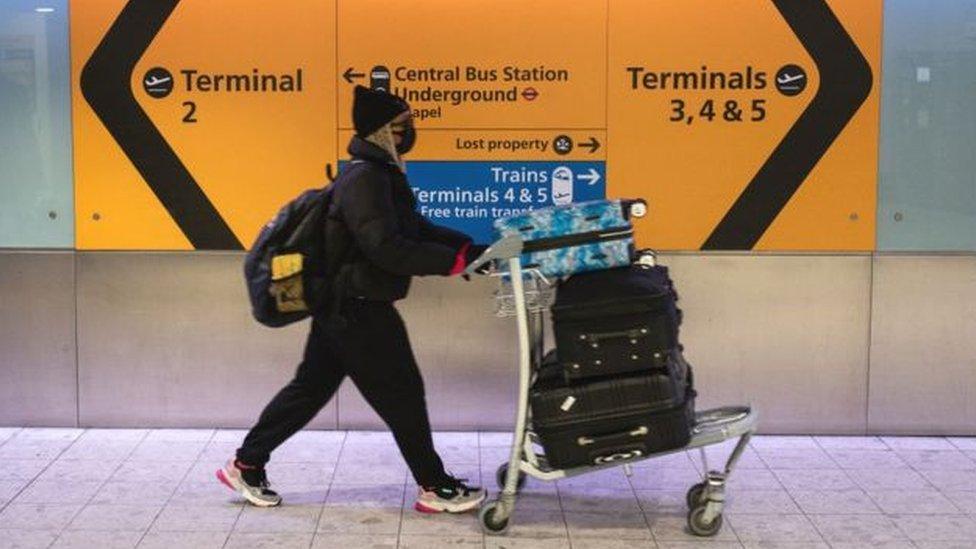
He also urged the government to produce a plan on what common standards UK airports should adopt, so that the aviation sector could "get started again".
Many airlines have been struggling as the coronavirus pandemic has brought global travel to a virtual standstill.
On Thursday, British Airways owner IAG has said it is hoping for a "meaningful return" of flights in July at the earliest if lockdown measures are relaxed.
However, IAG - which also owns Iberia and Aer Lingus - said these plans were "highly uncertain", and were subject to various travel restrictions.
IAG said it did not expect passenger demand, which has been hit by the pandemic, to recover before 2023.
"We will adapt our operating procedures to ensure our customers and our people are properly protected in this new environment," chief executive Willie Walsh said.
Aircraft grounded
The group said that even if flights resumed in the summer it expected that passenger capacity would still only be half the usual level in 2020.
Since late March, capacity has fallen by 94%, with most of the group's aircraft grounded.
The announcement came as IAG reported losses after tax hit €1.68bn (£1.47bn) during the first three months of the year, which included a €1.3bn charge for fuel hedges.
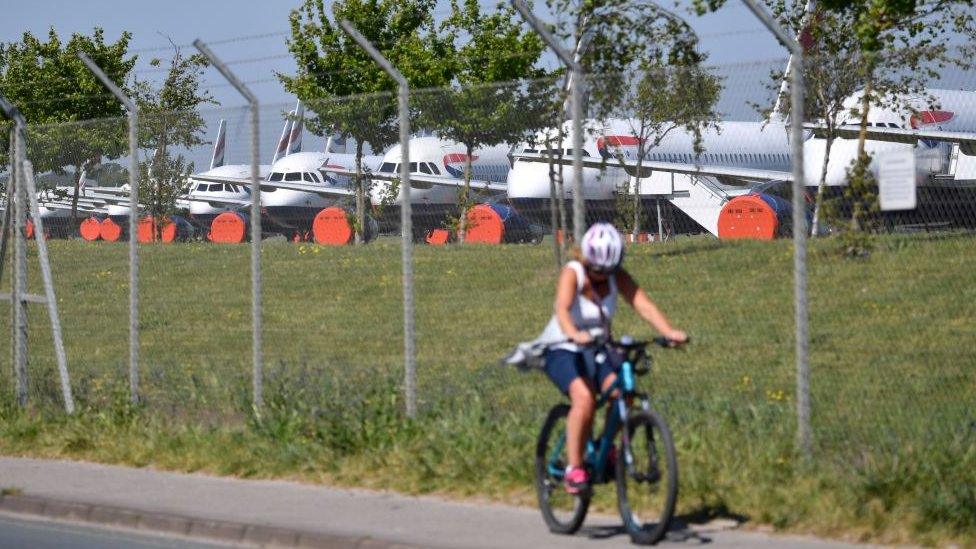
Many airlines are struggling during the pandemic
IAG also reported an operating loss of €535m (£466.6m) for the quarter, down from a €135m profit in 2019.
The group added that it expected the second quarter to be "significantly worse".
In an attempt to shore up cash during the coronavirus crisis, IAG said that it expected to defer deliveries of 68 aircraft.
Coronavirus crisis
Although IAG is planning for a resumption of some services, it says it will still need to let go of many staff.
Last month, BA said it was set to cut up to 12,000 jobs from its 42,000-strong workforce. It also told staff that its Gatwick airport operation might not reopen after the pandemic passes.

IAG chief executive Willie Walsh will delay his retirement until September
IAG chief executive Willie Walsh had been due to retire in March, but will stay on until September "to focus on the immediate response to the crisis".
Luis Gallego, head of the group's Spanish division, Iberia, since 2014, will succeed him.
On Wednesday, other aviation bosses called for additional support for the sector from the UK government.
Speaking to MPs on the Transport Select Committee, Heathrow Airport chief executive John Holland-Kaye argued that the French, German and US governments had provided large, bespoke rescue packages for their aviation industries as they saw them as "fundamental", and suggested that was not the case in the UK.
Air France KLM, for example, won a €7bn loan package from the French government in April.
However, IAG's competitor has reported that it made a loss in its day-to-day business of €815m in the three months of the year due to travel grinding to a halt.
Several other firms posted trading updates on Thursday which detailed how they had been affected by the coronavirus pandemic.
H&M, the world's second-largest fashion retailer, said sales had plunged by 57% in the last two months, with sales "muted" in stores that had been allowed to reopen.
InterContinental Hotels Group, the owner of Holiday Inn, warned that occupancy levels dropped to "historic lows" in March and April.
BT announced it would not pay a dividend to shareholders until 2022.
Ticketing app Trainline said that UK and European passenger volumes were down by as much as 95% in the first quarter.

A SIMPLE GUIDE: How do I protect myself?
AVOIDING CONTACT: The rules on self-isolation and exercise
HOW A VIRUS SPREADS: An explanation
LOOK-UP TOOL: Check cases in your area
TESTING: Can I get tested for coronavirus?

- Published3 May 2020
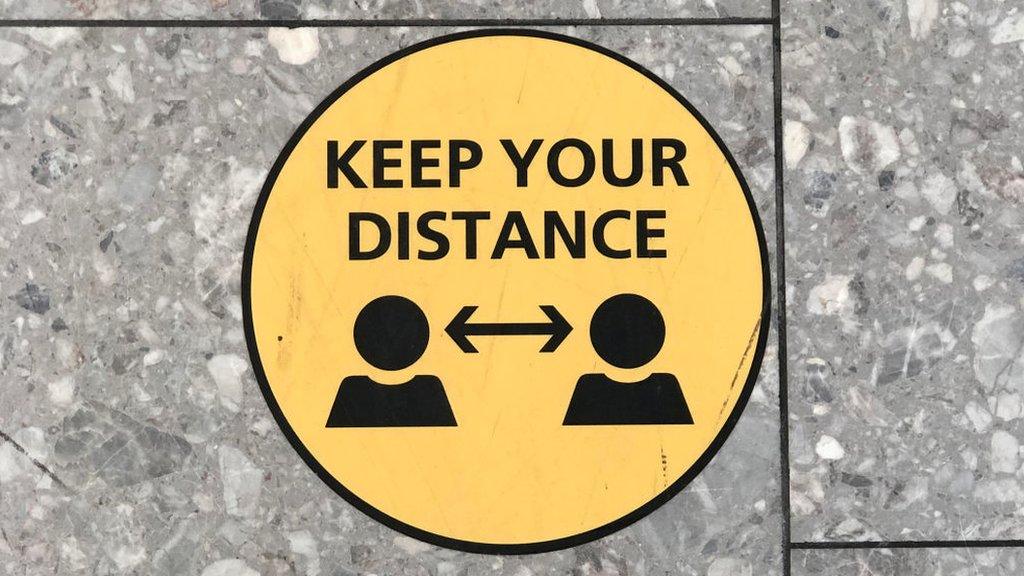
- Published30 April 2020
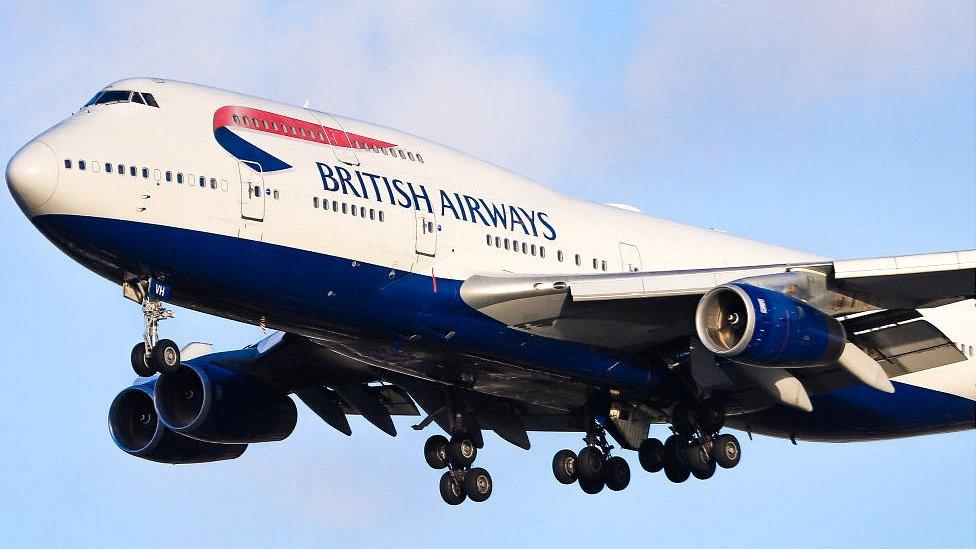
- Published28 April 2020
